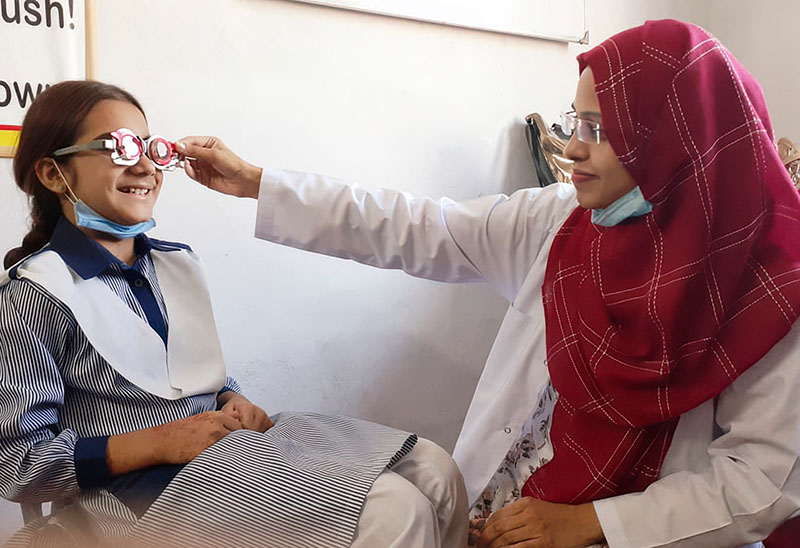Photocatalyst: Using Light to Clean Up Forever Chemicals
Artificial intelligence is more readily available than ever before to improve patient care and business operations in optometry.
Artificial intelligence is more readily available than ever before to improve patient care and business operations in optometry.
Neuroscientists reveal that the part of the brain that receives and processes visual information in sighted people develops a unique connectivity pattern in people born blind. They say this pattern in the primary visual cortex is unique to each person -- akin to a fingerprint.
Researchers have drafted a review on how FAF can facilitate the diagnosis and monitoring of posterior uveitis and panuveitis.
Markers in the blood that predict whether glaucoma patients are at higher risk of continued loss of vision following conventional treatment have been identified by researchers.

Cycloplegic refraction makes it possible to accurately measure a child’s refractive error and provide appropriate correction.
The custom-built robot was used to treat wet neovascular age-related macular degeneration (AMD).
Researchers have found that taking a daily supplement containing antioxidant vitamins and minerals slows progression of late-stage dry age-related macular degeneration (AMD).
Researchers have found that taking a daily supplement containing antioxidant vitamins and minerals slows progression of late-stage dry age-related macular degeneration (AMD).
Scientists report that a gene could be key to understanding why many people don't benefit from the most used therapy for neovascular age-related macular degeneration (AMD), a leading cause of blindness.
A group of researchers have created an exceptionally small implant, with electrodes the size of a single neuron that can also remain intact in the body over time.